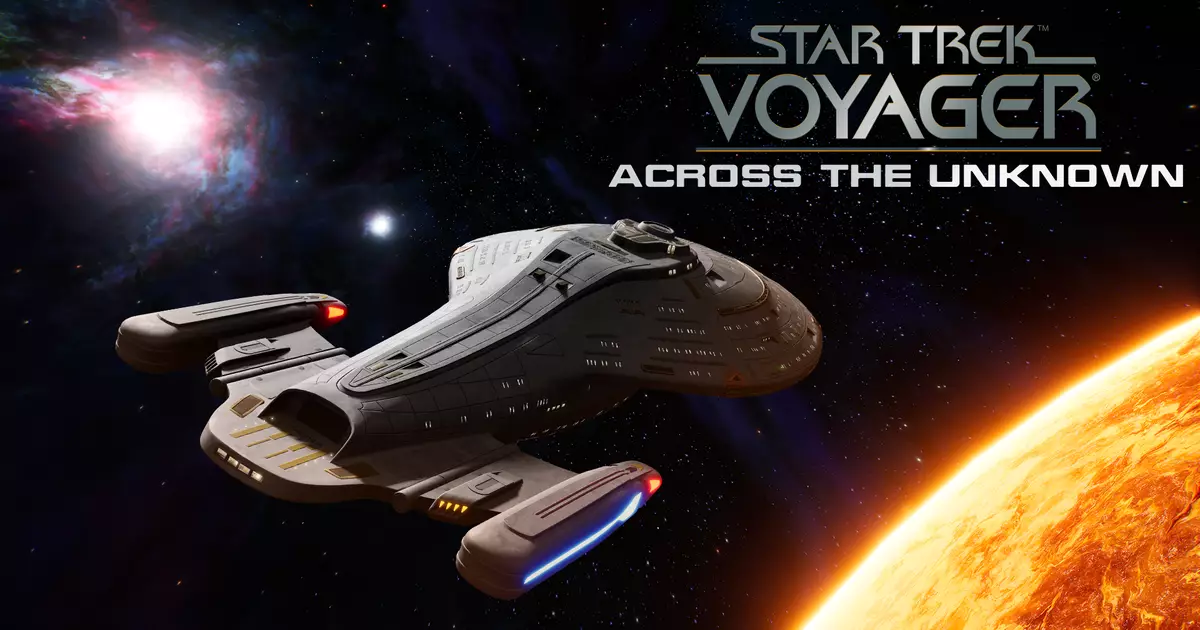Star Trek has long been a vessel of adventure, morality, and exploration—an expansive universe where humanity’s hope for the future is aspired to and questioned. The announcement of *Star Trek: Voyager – Across the Unknown* signals a bold step into this legacy, blending nostalgia with innovative gameplay. As a fan of the series and a critic of the gaming trends that often lean into formulaic repetition, I see this game as both an homage and a daring experiment that could reshape how we experience the Voyager saga. Its core premise—merging storytelling with survival strategy—aims to transform familiar characters and scenarios into fresh, interactive narratives. Yet, beneath its promising exterior lies a set of choices and design elements that warrant careful scrutiny.
This game’s concept revolves around managing ships, crew, diplomacy, and moral dilemmas at a granular level. Its design ticks several trendy boxes, from base-building reminiscent of XCOM to rogue-lite elements that ensure no two runs are alike. However, the crucial question is whether the game can transcend its mechanics to capture the heartfelt storytelling that made Voyager unique. Can a survival strategy game truly embody the nuanced moral choices and character development that fans crave? Or will it fall into the trap of over-reliance on gameplay gimmicks at the expense of the series’ emotional depth?
What intrigues me most is the potential for alternate history scenarios—what if Janeway had turned Borg Queen? Or the Doctor, instead of a holographic medic, stepped into the captain’s chair? These “what-if” questions open a Pandora’s box of possibilities, inviting players to explore the Delta Quadrant not just as helpless observers but as architects of their own Voyager narratives. Such freedom could reinvigorate the series’ storytelling, offering fans a personalized journey through an alien universe they hold dear.
The Mechanics of Nostalgia and the Pitfalls of Modern Gaming
While the premise excites, the execution concerns me. The game’s emphasis on resource management, ship facilities, and away missions suggests a significant deviation from what made Voyager compelling—the interpersonal relationships and moral conflicts depicted in the show. The decision to incorporate roguelite elements, though trendy, risks undermining the emotional stakes; each crew member’s demise or success could feel disposable rather than consequential.
Moreover, the choice of gameplay perspective—the miniaturized, top-down spaceship navigation—seems disconnected from the immersive grandeur of the original series. It’s a visual style that may diminish the vastness and mystery of the Delta Quadrant, reminiscent of a miniature diorama rather than a living universe. This could be a missed opportunity to fully capture the sense of wonder that Voyager inspired.
However, I do appreciate the inclusion of away missions, which could evoke the series’ exploratory spirit. Handpicking a team of familiar faces for specific tasks offers a layer of strategy and personal attachment. This dynamic allows players to experiment with crew composition, balancing skills against risks — a feature that could deepen engagement if executed well. The anticipation of commanding a combination of seasoned officers and expendable redshirts adds tension and replayability, but only if the game maintains meaningful consequences for these choices.
Balancing Nostalgia with Innovation
Ultimately, the success of *Star Trek: Voyager – Across the Unknown* hinges on its capacity to marry innovative gameplay with the heart of the original series. Nostalgia alone isn’t enough; it needs to be complemented by genuine gameplay depth and meaningful storytelling. The developers’ background—primarily working on Asterix adaptations—raises questions about their familiarity with the sensibilities of science fiction and space exploration. Their foray into the Star Trek universe feels like an ambitious leap into uncharted territory, one that could either falter or flourish.
I remain cautiously optimistic. The game’s potential to allow fans to explore new narrative dimensions, to redefine Voyager’s mythos, and to inhabit the roles of their favorite characters is undeniably compelling. Yet, it must avoid superficial mechanics and instead deliver a rich, complex experience that respects the source material. If done right, *Across the Unknown* can be more than just another game—it can be a testament to the enduring legacy of Voyager and the boundless possibilities of interactive storytelling.

